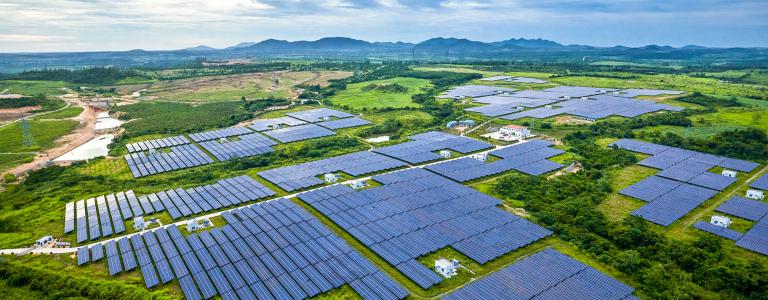Energy
Our experts offer practical guidance to help authorities choose the right system of electricity generation, reduce consumption of fossil-based transport fuels, and implement international climate change commitments.
We work side-by-side with local partners for less costly, more equitable energy systems. Aware of international policy developments, we identify wasteful practices, encourage new thinking, engage civil society, and support policy reform.
Related projects

Re-Energizing Canada
Oil and gas have shaped Canada’s past—but to ensure a prosperous future, the country must reduce its dependence on fossil fuel production. Find out why and how.
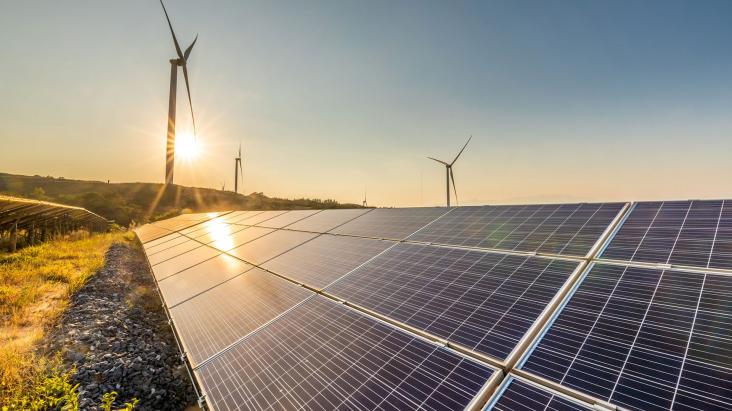
Energy Policy Tracker
Tracking realtime data on public finance for energy around the world.

Fossil Fuel Subsidy Tracker
Explore the latest global fossil fuel subsidy estimates from all major sources in one interactive database.
Research
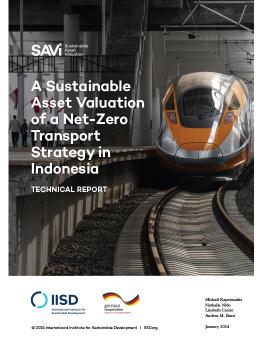
A Sustainable Asset Valuation of a Net-Zero Transport Strategy in Indonesia
This report presents the economic valuation of net-zero transport strategies in Indonesia—their investment costs, added benefits, and avoided costs—encompassing interventions such as investments in public transport, private vehicle electrification, teleworking, and decarbonization of the electricity supply.
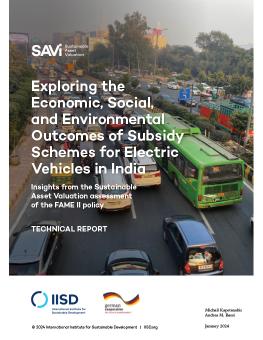
A Sustainable Asset Valuation of the FAME II policy in India
This report presents the economic valuation of the second phase of the Faster Adoption and Manufacturing of Electric (& Hybrid) Vehicles (FAME II) policy in India and demonstrates its economic, social, and environmental outcomes under different scenarios.
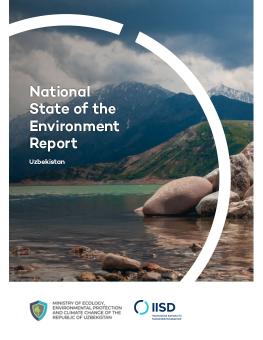
National State of the Environment Report: Uzbekistan
The National State of the Environment Report (NSoER) is a comprehensive document that provides a snapshot of current environmental trends in Uzbekistan's socio-economic development for citizens, experts, and policy-makers in the country of Uzbekistan.
Articles

The Critical Next Step: What you need to know about Canada’s 2030 climate target
Canada's climate target for 2030 is within reach, but more stringent policies and clearer government communication will be needed to get there. Our expert explains why these developments are critical for Canada to help avoid the worst impacts of climate change.

Ending Canada’s Support for Fossil Fuels
Canada has committed to ending subsidies and public financing for fossil fuels at home and abroad and has taken some important steps along the path. Our experts set out the journey so far, and how it can improve.

We Are on Course for a Very Dangerous Amount of Warming—But There Is Still Time to Change Course
Q&A with Greg Muttitt, Senior Associate at the International Institute For Sustainable Development and a lead author of the United Nations Environment Programme’s Emissions Gap Report 2023.
Experts

Ivetta Gerasimchuk
Director, Energy Program, International Strategy

Philip Gass
Director, Energy Program, Just Transitions and Canada

Christopher Beaton
Director, Energy Program, Public Financial Flows

Richard Bridle
Senior Policy Advisor

Anna Geddes
Associate

Tara Laan
Senior Associate

Shruti Sharma
Senior Policy Advisor

Anissa Suharsono
Associate

Andrea Bassi
Senior Associate

Aaron Cosbey
Senior Associate

Angela Carter
Senior Associate

Laura Cameron
Policy Advisor

Olivier Bois von Kursk
Policy Advisor
Latest
You might also be interested in

Subsidies
Fossil fuel subsidies make little sense in a world shifting to low-carbon sources of energy to tackle climate change.

Climate Change Mitigation
Tackling climate change requires urgently reducing greenhouse gas emissions to minimize the impacts on our societies, economies, and ecosystems.
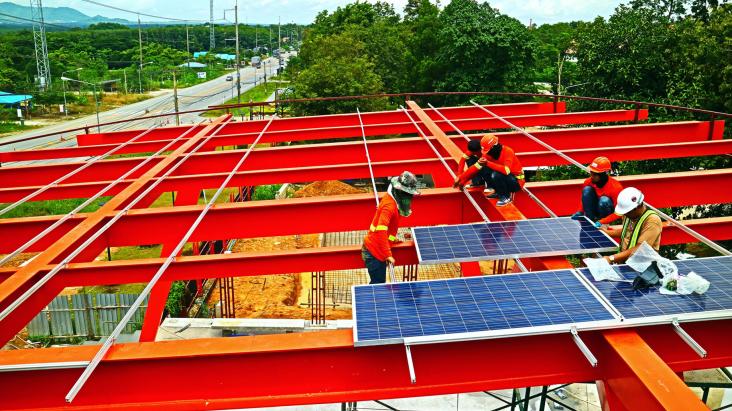
Just Transition
In the transition to clean energy, a just transition can minimize negative impacts and maximize positive opportunities.
